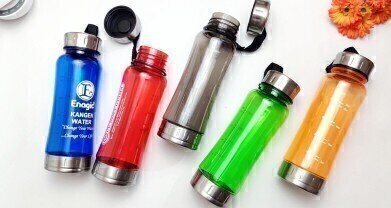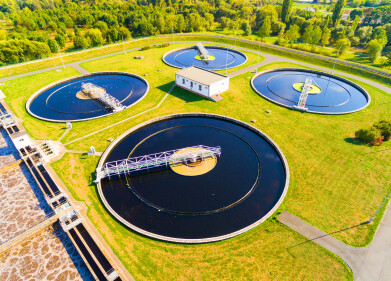Water/Wastewater
Can Plastic Bottles Be Reused?
Oct 07 2022
For those concerned about the future of our environment, the phrase “reduce, reuse, recycle” has become a mantra by which they live their lives. Given the proliferation of single-use plastic bottles in circulation today, buying a reusable plastic bottle might seem like an easy way to cut your consumption of plastic materials and slash your carbon footprint in the process.
However, certain scientific studies have raised concerns that drinking water from a plastic bottle might not be safe if you continue to use the same receptacle repeatedly. In this article, we’ll delve into the reasons why reusing a plastic bottle could be bad for your health, what you can do to minimise your exposure to risk and other ways in which you can reuse a discarded bottle.
The dangers of reusing a plastic bottle
In 2008, a research paper from the USA found that plastic bottles could be leaching chemicals such as antimony, bisphenol A (BPA) and phthalates into the water contained in them. Although the full effects of these substances on the human body are not yet understood, they are suspected of being endocrine disruptors and carcinogens, leading to serious health complications in higher concentrations. Reusing a plastic bottle simply gives them more chance to wreak this damage.
Meanwhile, there are also concerns that the plastic itself could disintegrate and contaminate the water in the form of microplastics. Often microscopic in size, we are exposed to these tiny pollutants throughout the day – even via the air we breathe – and they are also thought to be highly detrimental to the body’s ongoing health. Finally, reusing a plastic bottle can lead to a proliferation of bacteria, which can cause illness and disease.
How to keep yourself safe
To avoid exposure to harmful chemicals from your bottle, you should first check from which type of plastic it is made. On the base of each bottle, there should be a number surrounded by the universal “recycling” triangle sign. If your bottle is made from #2, #4 or #5, you should be fine to reuse it. If it’s made from any other number, you may want to steer clear of it.
To prevent the development of bacteria, you should wash your bottle on a regular basis using hot, soapy water. Keep it out of direct sunlight to prevent it overheating, which can cause an undesirable chemical reaction. But the surest way to avoid harm from reusing a plastic bottle is to switch it out for a glass or stainless steel alternative, since these can be infinitely reused and pose no health risks whatsoever.
Other uses for old plastic bottles
Of course, most plastic types can be recycled and this is a much preferable option to sending it to landfill. However, if you can find another purpose for your used bottle besides carrying water, this could give it a whole new lease of life. Here are just some ideas for how to reuse an old bottle:
- Pen and pencil holder
- Bird feeder
- Watering can
- Slow-drip outdoor irrigation system
- Indoor planter
- Tool rack
- Snack storage
It should go without saying that the list doesn’t there, either. Any new application you can think of for your old bottle will divert it from landfill and ensure that it contributes that little bit more to the world before being thrown on the rubbish heap. And that’s good for everyone.
Digital Edition
IET 34.2 March 2024
April 2024
Gas Detection - Biogas batch fermentation system for laboratory use with automatic gas analysis in real time Water/Wastewater - Upcycling sensors for sustainable nature management - Prist...
View all digital editions
Events
Apr 30 2024 Melbourne, Australia
Apr 30 2024 Birmingham, UK
May 03 2024 Seoul, South Korea
May 05 2024 Seville, Spain
May 06 2024 Minneapolis, MN, USA


















